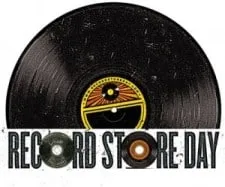By guest blogger by Dale Nixon of PoisonedPens.com –
Gardena, California import and indie music distributor Smash locked the doors last Friday after almost 20 years in the business. Unlike many of the closings that have savaged all aspects of the music retail landscape in the last year, the shuttering of Smash does not register on the Richter scale of closings like retailers Tower and Sam Goody, but the impact was felt primarily by the shrinking number of independent retailers who relied on boutique import operations for hot new product.
“I was trying to pack up my desk and leave a few hours ago, but the phone has kept ringing from

customers to ask if it’s true and say goodbye,” Smash sales rep Larry Herman said. “I’m just numb. When they told us I didn’t know what to think… Of course it’s bad news, but so many big accounts have closed in the past three years that it isn’t at all that surprising. There are less and less people to sell to, and it would have been hard to keep in it with the way the checks kept getting smaller and smaller.”
Importers, who have traditionally relied on the small independent store for the bulk of their business, have been disappearing with regularity in 2007. Usually operating outside of the influence of the major label system, as well as many of the retail alliances, privately-owned importers present an industry version of that classic tree-falling-in-the-woods conundrum; when an importer closes no one really notices except the clients.
“Even the stores that have survived, the strong stores, have cut back so much that often it’s only the owner working all day because they have no other option,” Herman said. “I have seen so many stores go under the past few years, good stores and good accounts, some of which were around since the late 1960’s and they are just gone. Nobody has any idea what they are going to do next.”
Declining revenue symptomatic of the industry has been just as apparent on the import side, which often provided a crucial link to breaking bands such as The Libertines, who became popular in Europe long before receiving a stateside record deal or release.
“Everyone points to the internet and downloading as the cause, but I don’t think that is the answer,” Herman noted. “The major label thing is a disaster, pricing (to independent stores) is ridiculous and (the majors) aren’t putting out as many popular releases. From out end, product has been disappearing, and prices went way up with the Euro. There was a time when we saw vinyl peaking and thought that would pull us through, but obviously it was not enough…”
The import industry, operating independent of exclusive distribution deals, often had the ability to react quickly when tipped off to emerging trends such as the vinyl resurgence. Since the mid-90’s, the European markets, particularly England and Germany, were the last bastions of the vinyl empire. The resurgence of the vinyl market left many retailers calling on import distributors for the LP releases of hot-selling indie rock bands such as Radiohead which have had limited or no domestic vinyl releases.
Smash, which had been operating since 1992, had diversified to carry some key U.S. independent labels such as Nitro (AFI), 4AD, Epitaph/Anti (Bad Religion, Tom Waits). But a new exclusive deal with WEA’s ADA meant that Smash would have lost the rights to Epitaph product in September.
While the closing does represent a blip on the radar of music-industry unemployment (at the time of closing Smash was down to three sales reps, two warehouse workers and the ownership), many of the remaining retailers wonder where and how they will get the hot new product that customers crave before the slow-moving major label hype machinery kicks into motion.
If the digital era is to be about speed of delivery to the consumer, it is an area in which the big labels have admittedly never excelled.
“There’s no answer, I don’t know what’s going on,” Herman shrugged. “You just can’t replace the experience of the people that the industry is losing – people who have made music their lives… I’ve played in bands, owned and worked in stores and in wholesale since the mid-80’s and I don’t know what I’m going to do. People like us are few and far between now.”
And getting fewer by the day, it seems.




